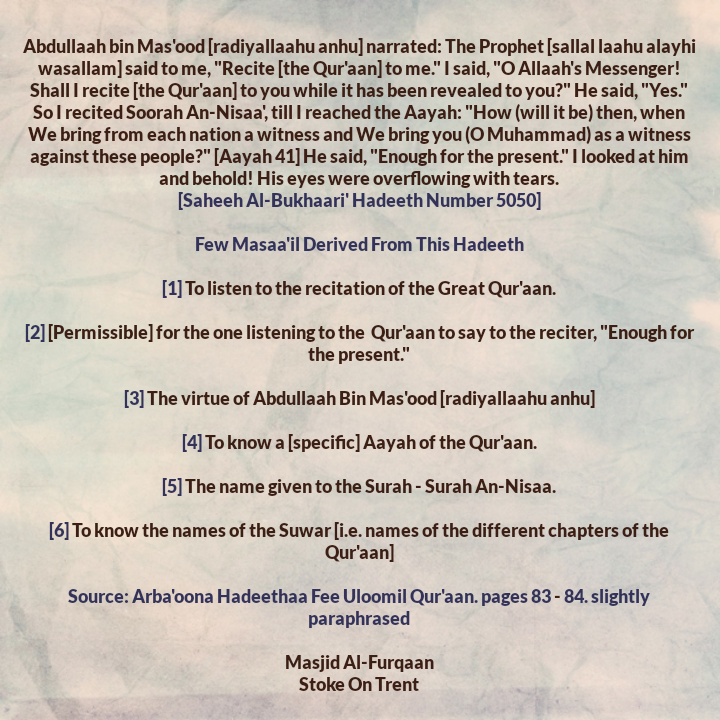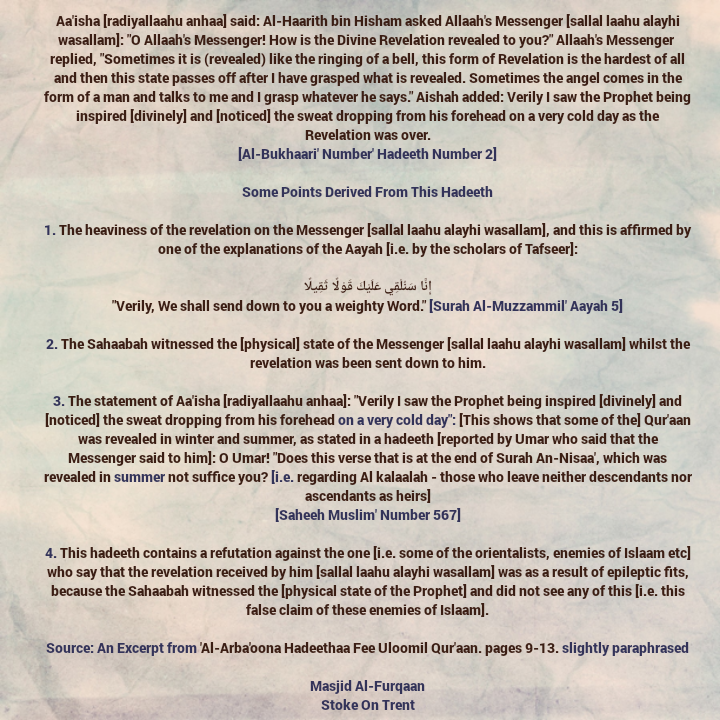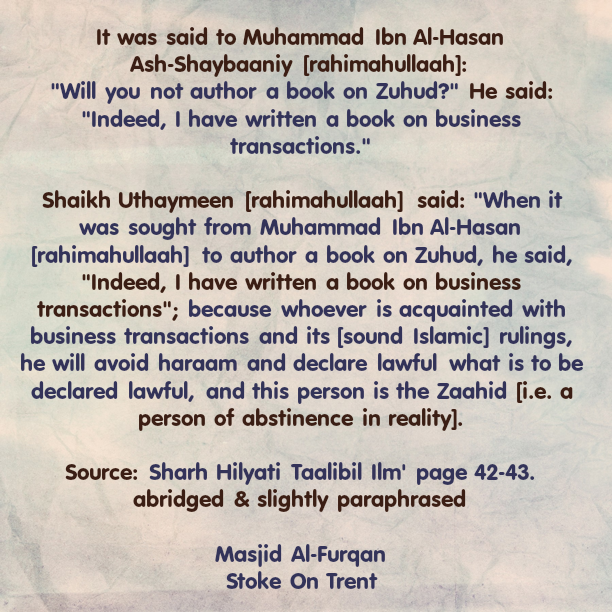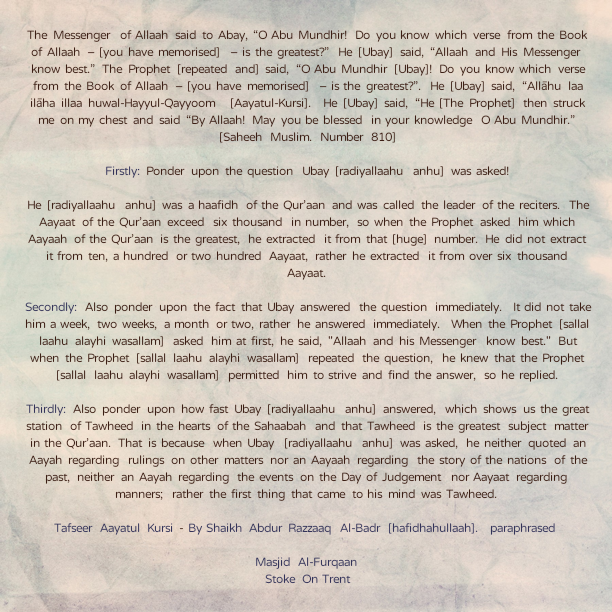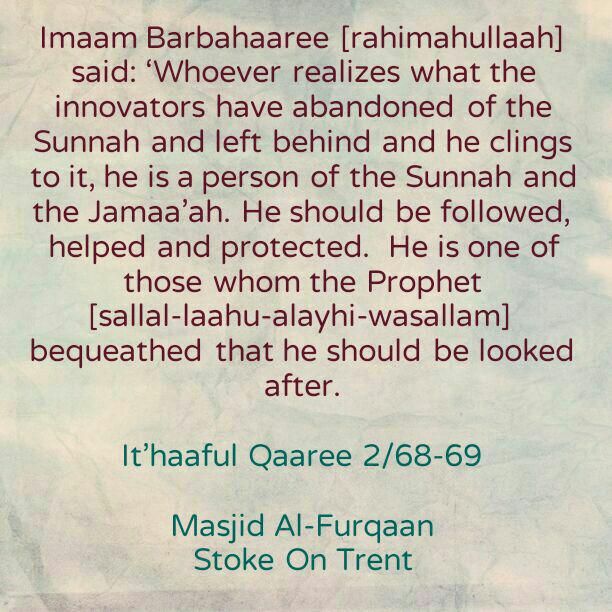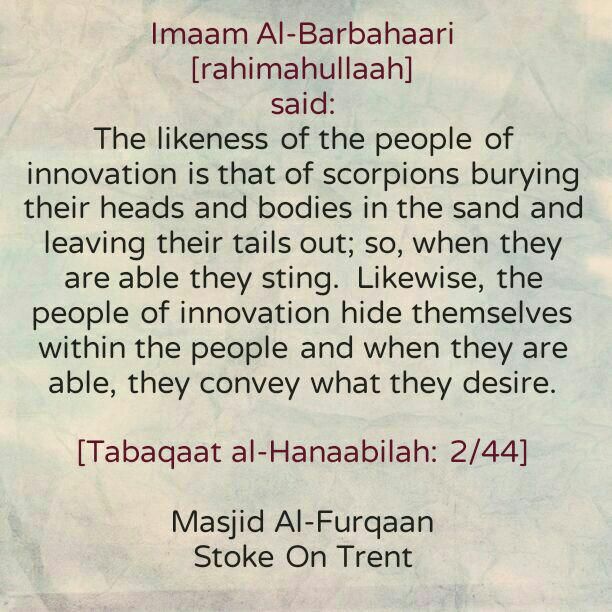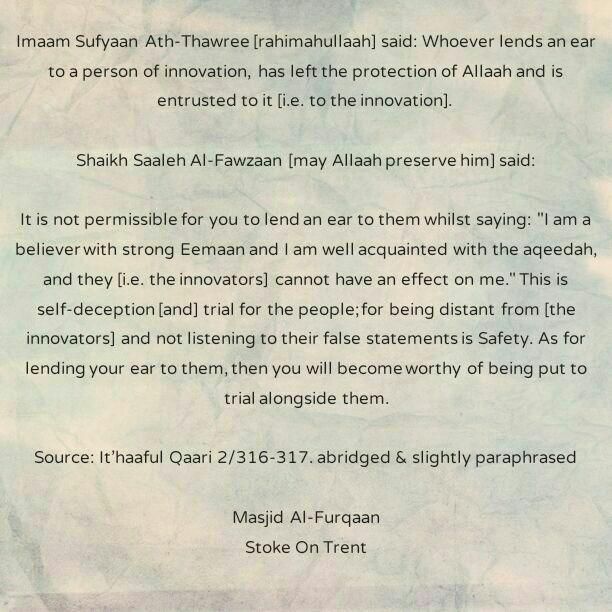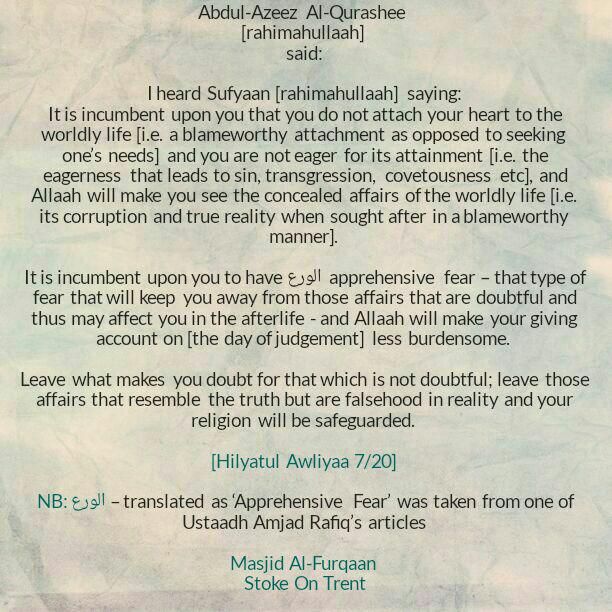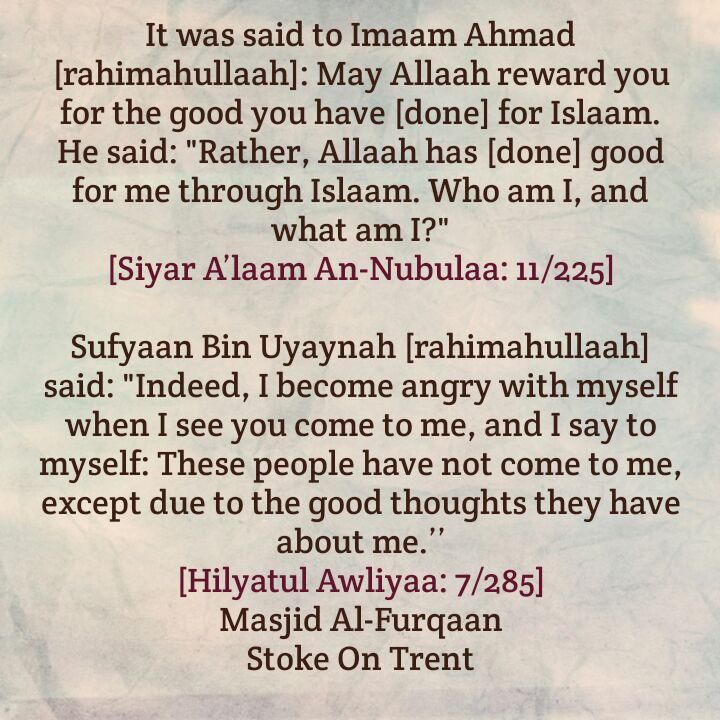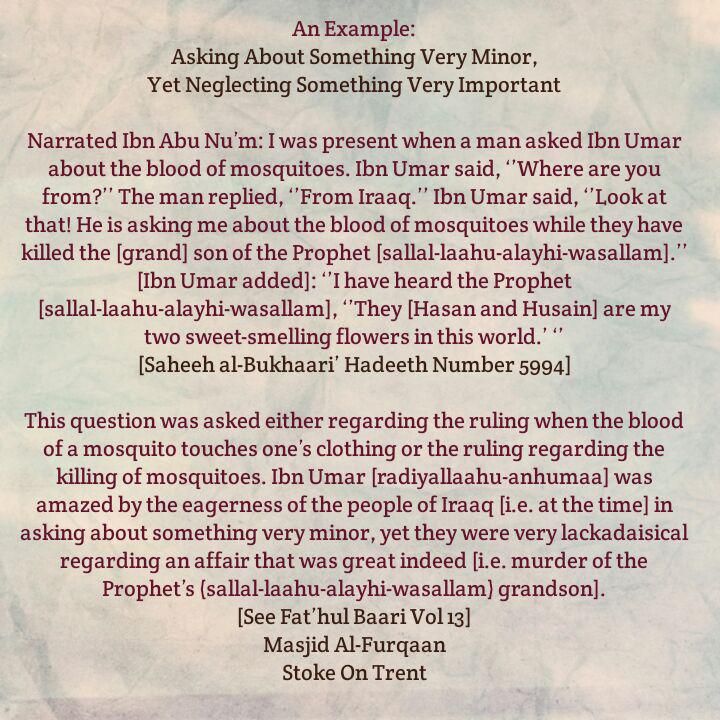[6]Series: Ahaadeeth Related to Uloom Al-Qur’aan: An Aayah In Soorah An-Nisaa That Brought Tears to The Eyes of The Noble Messenger (sallal laahu alayhi wasallam)
In The Name of Allaah, The Most Merciful, The Bestower of Mercy
Abdullaah bin Mas’ood [radiyallaahu anhu] narrated: The Prophet [sallal laahu alayhi wasallam] said to me, “Recite [the Qur’aan] to me.” I said, “O Allaah’s Messenger! Shall I recite [the Qur’aan] to you while it has been revealed to you?” He said, “Yes.” So I recited Soorah An-Nisaa’, till I reached the Aayah: “How (will it be) then, when We bring from each nation a witness and We bring you (O Muhammad) as a witness against these people?” [Aayah 41] He said, “Enough for the present.” I looked at him and behold! His eyes were overflowing with tears.
Saheeh Al-Bukhaari’ Hadeeth Number 5050
Few Masaa’il Derived From This Hadeeth
[1] To listen to the recitation of the Great Qur’aan.
[2] [Permissible] for the one listening to the Qur’aan to say to the reciter, “Enough for the present.”
[3] The virtue of Abdullaah Bin Mas’ood [radiyallaahu anhu].
[4] To know a [specific] Aayah of the Qur’aan.
[5] The name given to the Surah – Surah An-Nisaa.
[6] To know the names of the Suwar [i.e. names of the different chapters of the Qur’aan]
___________________________________________
Source: Arba’oona Hadeethaa Fee Uloomil Qur’aan. pages 83 – 84. By Shaikh Muhammad Baazmool [hafidhahullaah]
